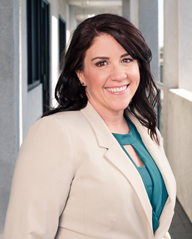Find a CBT Therapist
Search through our directory of local clinicians.
Jill Stoddard

Featured Therapist Interview
Jill Stoddard is a licensed psychologist. She received her Ph.D. in clinical psychology from Boston University where she trained at the Center for Anxiety and Related Disorders. She went on to complete an APA-accredited internship and post-doctoral fellowship at the University of California San Diego School of Medicine. Thereafter, she worked as a staff psychologist at the San Diego Veterans Hospital in the Primary Care and Post-Traumatic Stress clinics. After leaving the VA, she enjoyed nine years as core faculty at Alliant International University.
Dr. Stoddard is the founder and director of the Center for Stress and Anxiety Management (CSAM), a multi-site outpatient clinic in San Diego, specializing in Acceptance and Commitment Therapy and Cognitive Behavioral Therapy for anxiety disorders, OCD, and PTSD. While Dr. Stoddard works primarily with individual adults, her team at CSAM works with children, teens, adults, and couples.
You can read more at www.csamsandiego.com
First, we would like to know a little about your practice.
What are your personal strengths as a practitioner?
I am often told I am approachable and authentic-what this means to me is that clients feel comfortable sharing difficult things with me, and they trust the response they get will be honest and real.
What “tips” can you offer to colleagues just opening a practice?
First, truly anyone can do it-you don’t need to think of yourself as “a business person” to be able to learn the ins and outs of creating and growing a successful practice.
Second, ask for help! Many others have figured this out, learning valuable lessons along the way-tap that resource.
Third, find or establish a consultation group. I’ve had mine for about 8 years and it helps so much knowing we can rely on each other for clinical, business, or other advice.
Are you involved in other types of professional activities in addition to your private practice?
In addition to my role at CSAM, I also love to speak, teach, and train. I am a peer-reviewed ACT trainer and offer both ACT and CBT workshops to mental health trainees/providers as well as to groups in the community. My favorite professional activity is writing. I’m the co-author of The Big Book of ACT Metaphors: A Practitioner’s Guide to Experiential Exercises and Metaphors in Acceptance and Commitment Therapy (available here) and the author of Be Mighty: A Woman’s Guide to Liberation from Anxiety, Worry, and Stress Using Mindfulness and Acceptance (available here) and I also have a regular blog for Psychology Today. This year, I became a cohost of my favorite podcast, Psychologists Off the Clock podcast. I’m also a co-founder and vice president of the non-profit San Diego Cognitive Behavioral Therapy Consortium and member-at-large on the board of The Association Contextual and Behavioral Sciences (www.contextualscience.org).
We would also like to know a little about you personally.
Who was your mentor?
I got my PhD in clinical psychology from Boston University where I was fortunate to be mentored by remarkable people like Dr. David Barlow and Dr. Stefan Hoffman.
It was there, at the Center for Anxiety and Related Disorders, that my passion for treating anxiety using evidence-based methods took root.
When not practicing CBT, what do you do for fun?
I love spending time with my family, friends, and dogs. This might include dinners, walks on the boardwalk at the beach, or playing games. I also love to read and listen to podcasts.
We are also interested in some of your views of CBT.
What do you think is the single most important thing CBT can do for your clients?
Get them unstuck! Many of my clients had been in therapy (sometimes for years) before coming to see me, and while they felt they had come to understand themselves better, they lacked the skills to actually make changes and move forward with their lives. CBT and ACT allow them to do just that.
Where do you see the field of the behavioral therapies going over the next 3-5 years?
I think we will come to understand and focus more on underlying mechanisms of change (i.e., process-based CBT).
How do you use the local or social media to educate your community on the benefits of CBT?
I utilize my website (https://www.jillstoddard.com), my Psychology Today blog Be Mighty, my podcast (https://www.offtheclockpsych.com), my Twitter (@jill_stoddard), and my Instagram (@jillastoddard), as well as guest appearances on podcasts and television, and workplace trainings to help create a more inclusive mental health community. My mission is to share cutting-edge, evidence-based tools based on ACT and CBT to help people get unstuck and to find meaning and vitality in their lives.
Finally, we would like to know your opinions about ABCT.
How long have you been a member of ABCT?
Since graduate school.
How has ABCT helped you professionally?
By connecting with other professionals who share similar values.
What services do you consider the most valuable from ABCT?
The ‘find a therapist’ service on the ABCT website-I use it ALL the time to help people find quality referrals in their area.
Thank you very much for taking the time to answer our questions!
My Account Info
Manage your Membership information, email preferences, and more.
Journals
Membership in ABCT grants you access to three journals.
Convention
We are now accepting Abstract submissions for Continuing Education Ticketed Sessions at the 2024 ABCT Convention in Philadelphia, PA.
My Account Info
Manage your Membership information, email preferences, and more.
Journals
Membership in ABCT grants you access to three journals.
Convention
We are now accepting Abstract submissions for Continuing Education Ticketed Sessions at the 2024 ABCT Convention in Philadelphia, PA.
